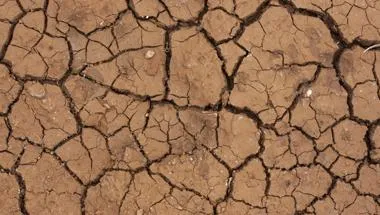
Biography
Zenzo Sibanda is a PhD student in the Department of Geography, mixing life stories in a historicised landscape approach with quantitative surveys to investigate limits to adaptation to climate change among drought-experienced dryland communities resettled in the vicinity of Ramsar Convention wetlands in Zimbabwe.
He holds two master's degrees, from the University of Sussex in Sustainable International Development with Distinction, and Rhodes University, South Africa, in Management. Zenzo brings a well-regarded 10 years of experience as a professional in international development, with experience in research and technical delivery across livelihoods and economic growth and governance projects across Uganda, Malawi, Nigeria, South Africa, and Zimbabwe.
At King’s College Zenzo has expanded his research interests beyond international development to include widening access, black placemaking in geography, and transforming educational curricula to achieve sustainable inclusivity. He is the lead researcher on a project researching Black placemaking in the Geography Department at King’s College London. The project focuses on the experiences and contributions of Black Post-Graduate Taught (PGT) and Post-Graduate Research (PGR) students, academic, and professional services staff in producing the departmental and disciplinary space (material and imagined) of geography “from the bottom-up” as the university makes place “from the top down”.
Research
Thesis title: Climate risk and internal migration: adaptation response in Ramsar sites.
Zenzo's PhD examines limits to adaptation to climate risk in Zimbabwe and what happens next. Breaching adaptation limits is a complex and context-specific social process. It can either trigger transformations in people’s adaptive capacity, or it can result in failed adaptation, loss and damage, and abandonment of livelihoods at the opposite extreme. In this study, Zenzo aims to develop a method for analysing adaptation limits as they affect households faced with dynamic climate risks.
Zenzo mixes life stories, to understand the balance between material (assets) and culturally shaped (narratives) meanings of 'intolerable risk', how people support their livelihoods through adaptation, the costs of adaptive effort and attitudes to risk and resilience, with a quantitative survey of semi-permanent in-country migrants in Zimbabwe. The research studies people who migrated during the country’s two phases of planned (1980-1990) and spontaneous (2000-2002) land reform.
These two types of households are interesting because their migration signifies the intersection of climate-related thresholds with socio-economic stressors in people's livelihoods which caused migration to be a viable response where it ordinarily would not have. Their experience of migration provides additional information and awareness of the conditions under which potential future climate-risk-influenced migration/adaptation may occur.
PhD supervision
- Principal supervisor: Frans Berkhout
- Secondary supervisor: Sarah Bracking
Further details
Research

Risk, Hazard & Society research group
Advancing understanding of risk and perception, as well as communication and regulation in a range of environmental, social and country contexts.

Centre for Integrated Research in Risk & Resilience
Bringing together research disciplines to shape a critical perspective on resilience and its application as a concept.
Research

Risk, Hazard & Society research group
Advancing understanding of risk and perception, as well as communication and regulation in a range of environmental, social and country contexts.

Centre for Integrated Research in Risk & Resilience
Bringing together research disciplines to shape a critical perspective on resilience and its application as a concept.
